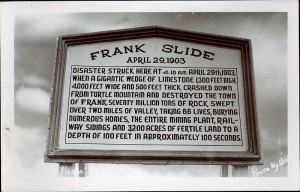3.2 The Reader’s Guide to Aurality in Thomas King’s Fiction
Find three examples of names that need to be spoken aloud in order to catch the allusion. Discuss the examples as well as the reading technique that requires you to read aloud in order to make connections. Why does King want us to read aloud?
I have gained a deep appreciation for Thomas King’s ability to flawlessly combine the structures of the oral and written cultures in his narrative in Green Grass, Running Water. This novel is a portrayal of oral culture in a written form. There is a combination of the mythical aspect of the oral culture, along with the rigid, structure of the written word. A mix of mythology and reality is persistent throughout the duration of the novel. King’s narrative technique is encompassed by the technique of written orality. Within this novel, King demonstrates the ability to incorporate the fundamental principles of orality into his narrative. After I read this story aloud to myself, the three names that popped out to me in terms of their allusion and meanings were: Dr. Joseph Hovaugh, Alberta Franklin, and Eli Stand Alone.
When I read Dr.Joseph Hovaugh’s name aloud, I could not help but abbreviate it in order to make the allusion crystal clear: Dr.J Hovaugh = Jehovah. His character shows God-like characteristics and it is his cold-blooded attitude along with his self-perceived superiority that makes this comparison so fitting. By reading this name aloud, I was able to understand the perspective from which Hovaugh’s character sees the world from. He has a superiority complex that he demonstrates within his search for the four elder Indians who have left the hospital. In one passage in the novel, he plays the role of God by declaring that the Indians are dead, and suggests that a death certificate should be made claiming their deaths by “Heart attack, cancer, or old age” (King 47). The allusion associated with the pronunciation of his name shows the ideals of the white settlers that were colonizing the lands of the First Nations people. This is shown by Hovaugh when his car goes missing, and he blames the people of the land: “It’s the country..Look around. Just look around” (King 345). His occupation is telling as he is in a position of authority, and seems to think he is in control of everything, even though King shows this is not the case as Hovaugh really resembles an old man who is set in his own ways, and has a misconstrued vision of the world he is living in.
Alberta Franklin’s name was an interesting experience when I said it aloud. It had the allusion of a place, because i was under the impression that King’s use of “Alberta” was not just by mere coincidence. I did some further research, and it turns out that her name alludes to the location of Frank, Alberta. After finding out this information, I repeatedly said the name aloud, and King’s genius began to make sense. Two words. A pause after each word when a sentence is pronounced. “Alberta, Franklin”. Just like the location, Frank, Alberta. I say this was an interesting experience because of the symbolic meaning behind Frank, Alberta, as it was the location of a devastating landslide that claimed that not only damaged its surrounding territory, but also claimed the lives of many people. Alberta is a character who seems on the verge of catastrophic breakdown, as she cannot decide how to navigate through her world as a woman who wants a baby without the stresses of marriage. She is also similar to a landslide in the sense that her story is intertwined with the lives of those around her, especially Charlie and Lionel. Wherever she goes, they go with her.
Eli Stand Alone. Saying this name aloud has a feeling of loneliness associated with it. Eli. Stand. Alone. The words become real objects, and King has us say this name aloud to illustrate the struggle of finding identity. It is extremely difficult for this Eli to let go of the past and move into the modern world. Boundaries between the past and future are not easily penetrable for him, as the boundaries between the oral and literate cultures are for Thomas King. There is a crisis of identity that is evident because the character does not have a last name or a family to which he strong associates with. He is “Alone”. With all the biblical references that are littered throughout the novel, I researched Eli’s name and found out that it alludes to the biblical version of Eli. I was able to find out that both characters are similar in their beliefs, as well as the manner in which they both vanish from the physical world.
Works Cited
Gibert, Teresa. “Written Orality in Thomas King’s Short Fiction”. Journal of the Short Story in English. Autumn, 2006. Web. March 09, 2015.
King, Thomas. Green Grass Running Water. Toronto: Harper Perennial, 1999. Print.
“1 Samuel 2:27 – 4:22”. New International Version. March 09, 2015. Web. www.biblegateway.com/passage/?search=1+Samuel+2%3A27-4:22
“Frank Slide, Alberta”. March 09, 2015. Web. http://www3.sympatico.ca/goweezer/canada/frank.htm
“Frank Slide”. University of Alberta. Photograph. Retrieved March 09. 2015.


Hey Rajin,
Interesting thoughts on the names of these characters. I think you’re spot on about what King wanted to portray with Dr. Hovaugh, but I’m not so sure about what you’ve said about Alberta. To my mind, she is a strong, independent woman who is very far from being metaphoric for a natural disaster in and of itself. It’s interesting, though, that the landslide at Frank came down from a mountain called Turtle and buried a mining plant. I feel like that is an homage to the strength of this woman rather than to her weakness, because mining is terrible for the environment and the turtle reminds me of the creature that supported Charm in The Truth About Stories before there was land (King 16). All this considered, I feel that Franklin, Alberta (Frank in Alberta) connotes native peoples working to stay true to themselves and protect what’s important by resisting the pressures of the society that they find themselves in even when that is hard and necessitates conflict. This conclusion is supported by the fact that “Alberta Franklin” sounds a lot like “Aretha Franklin” as well, and she is a super-celebrated African American singer whose most famous song may well be the hit “Respect.” If you look that song up at azlyrics.com, you will see why this underscores my conclusions.
Works Cited
Franklin, Aretha. “Respect.” Lyrics. A-Z Lyrics. Web. 11 Mar. 2015
King, Thomas. The Truth About Stories: A Native Narrative. Toronto: House of Anansi, 2003. Google Books. Web. 11 Mar. 2015
Hi Lauren,
Thank you for commenting on my blog post, and I am really sorry for the extremely late response! I do not know how I missed this notification. I would love to demonstrate to you why I think about Alberta Franklin’s character in the manner I do.
I love your inclusion of Aretha Franklin in comparison to her character, I think it is really original and brilliant! That thought never crossed my mind. After reading the lyrics and thinking about Franklin’s character from your perspective, I can totally see where you are coming from. One of the main reasons why I equate Alberta Franklin with the tragic landslide in Frank, Alberta is because of the other lives that are impacted by her actions. She’s a school teacher and has a huge influence over the lives and education of her students. She’s in charge of them while they are in her classroom, and if she were to explode or commit any negative actions in that environment, her students would be the ones who are greatly impacted. I see Lionel’s and Charlie’s lives as being intertwined with Alberta’s too. They are competing for her marriage and it is her choices and movements that are in direct correlation with Lionel. Her story is directly tied with those two characters. The same as how a potential disaster (such as a landslide) is directly connects with the citizens of that environment.
I have to disagree with your assessment of Alberta’s character as being a strong, independent woman. There were many passages throughout the novel that I interpreted involving Alberta as being chaotic and on the cusp of potential disaster, like a landslide. It starts with the very first time we encounter her character teaching her class, and to me it seems like she’s fed up with her students. Her students for the most part are not paying attention to her lessons, and the little phrases such as “Alberta sighed.” (King 20), and “Alberta raised her voice sharply” (King 19), evokes feelings of frustration. I understand her current state is completely due to her students lack of respect and inattention to her teachings, but I really took this scene as symbolic of what her life is.
The two other scenes that stick out to me are her interaction with Connie in the police station (King 307), in which she has an emotional break down; and, her constant refusal to the idea that she may be pregnant (King 413).
I am still trying to figure out why I did not view Alberta Franklin as a Native Indian character. She was the only Native character in the novel who I did not associate with her culture. Instead, I just looked at Alberta as a female character trying to navigate through the world. Her ideas of pregnancy and marriage seemed to be problems that any woman may go through, regardless of culture or race.
Works Cited
King, Thomas. Green Grass Running Water. Toronto: Harper Perennial, 1999. Print.
Regards,
Rajin Sidhu
Hi again Rajin!
I feel like our differing perspectives on Alberta may be due to our differing genders. There are certain things about Alberta and the situations that she finds herself in which, as a woman, I relate to, and I anticipate that she would navigate these situations well based on the behaviour King depicts for her; however, you seem to view the same behaviours as markers that she is emotionally unstable. It’s very interesting!
I do see why you would associate her with a landslide in ways, though. She does seem to have enormous influence (or the potential for it) over others in her life; but the negative connotations are just not there for me, especially as I am not sure King would view the landslide at Frank as having been a negative thing, considering that it took out a mining plant.
Again – perhaps we are just on different pages about this question!
Hi Lauren,
This is why I love literature! A healthy debate can take place between readers with two totally different perspectives about a single character, plot, or any subject matter! I think you’re spot on in your opinion that are differences about Alberta’s character are mainly due to our gender perspectives. I have no idea what it is like navigating through the world as a female, so I can only view her issues through a male’s perspective. Alberta does have strong characteristics and a little part of me is itching to be on her side, but from my reading of her character, I just can’t put myself on Team Alberta.
Thanks for your feedback! The next time I read this novel, I’m definitely going to keep your perspective about Alberta in mind.
Regards,
Rajin Sidhu